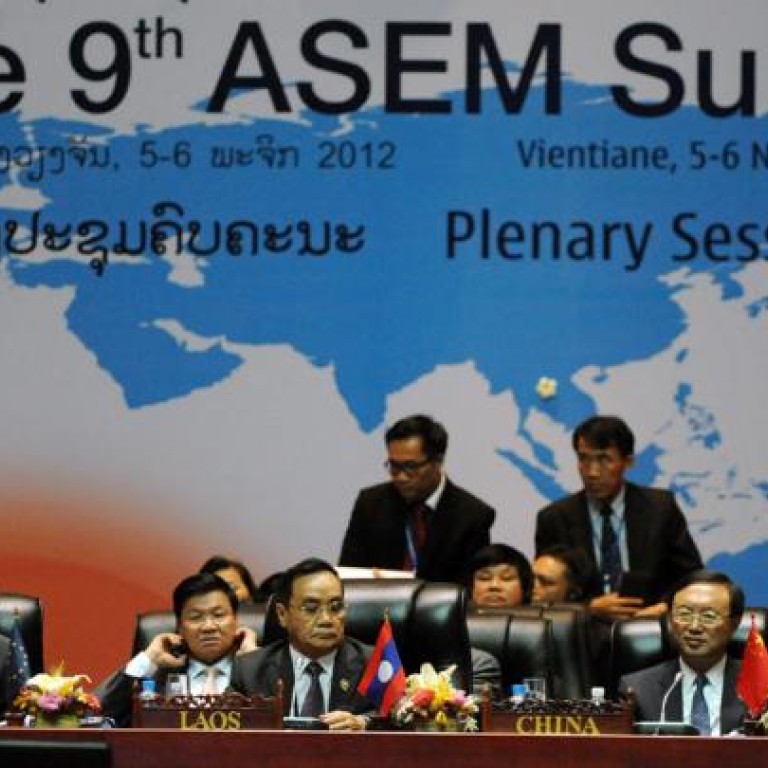
Laos, Russia join WTO path to growth
Donald Gasper says making the most of long-awaited status will take work
Laos hosted the 9th Asia-Europe Meeting in its capital, Vientiane, this week, and many will see this as a coming-out party for the Southeast Asian nation, which is about to become the newest member of the World Trade Organisation.
When, on October 26, the WTO invited Laos to become a member it was the culmination of 15 years of negotiations. The country's lawmakers are now expected to accept the invitation when they meet next month, making it the final member of the Association of Southeast Asian Nations to be accepted into the world trade body. But it will not be the only new member of the club.
While Laos is still an economic minnow, the Russian Federation is a whale. After waiting 18 years from its application to join, Russia became a WTO member in August, the last major economy to do so.
It is likely that both states have in mind China's experiences since its WTO accession in 2001, which, as former Singapore prime minister Lee Kuan Yew once remarked, had the effect of turning the entire country into one big special economic zone. By forcing reforms within the Chinese economy and stimulating a wave of foreign direct investment, WTO membership has been a major factor behind China's high-speed growth over the past decade. Most observers agree it has been a major beneficiary of globalisation since joining.
Laos also hopes to replicate the success of its neighbour Vietnam, which joined the world body in 2007 and has experienced tremendous growth since then. It is true that China and Vietnam were already major exporters before they joined and are considerably more developed than Laos is now. However, with labour costs rising in China, Laos could develop into a new low-cost manufacturing base for foreign multinationals. In addition, once new rail and road links are built, helped by foreign investment, it could become a major land bridge linking Asean with China.
According to the International Monetary Fund, the country is expected to grow by 8.3 per cent this year, making the nation, one of the world's poorest, the fastest-growing economy in Southeast Asia. WTO membership, by lowering tariff barriers and providing a level playing field for foreign investors, will help consolidate this growth.
The same goes for Russia, though some say the best time for it to join would have been a few years ago; the competitiveness of its oil and gas sectors could have been boosted by lower trade tariffs. Nevertheless, Russia can be expected to follow the path of the other former Soviet states that are now WTO members. They have all seen improvements in the investment climate and in growth.
The World Bank calculates that WTO membership will initially add about US$49 billion per annum to the Russian economy, or more than 3 per cent of gross domestic product at 2010 prices. However, David Tarr, a former World Bank economist who took part in Russia's WTO negotiations, has calculated that the long-term gains could amount to the equivalent of 11 per cent of GDP per annum.
One thing that gives foreign businesses the confidence to invest in WTO member states is its trade dispute mechanisms, which provide a useful tool to resolve small and medium-sized disputes. Barack Obama, in the recent debate with Mitt Romney on foreign affairs, referred to successful trade litigation against China using these mechanisms. However, China has also used them in its favour.
As WTO members, both Russia and Laos will have to implement reforms to make trade procedures more predictable and transparent and to facilitate operations for foreign companies.
If they wish to take full advantage of their new status to attract overseas investors, the authorities will have to cut red tape, crack down on corruption and raise the level of legal protection. If this happens, it will certainly be welcome news for investors.

